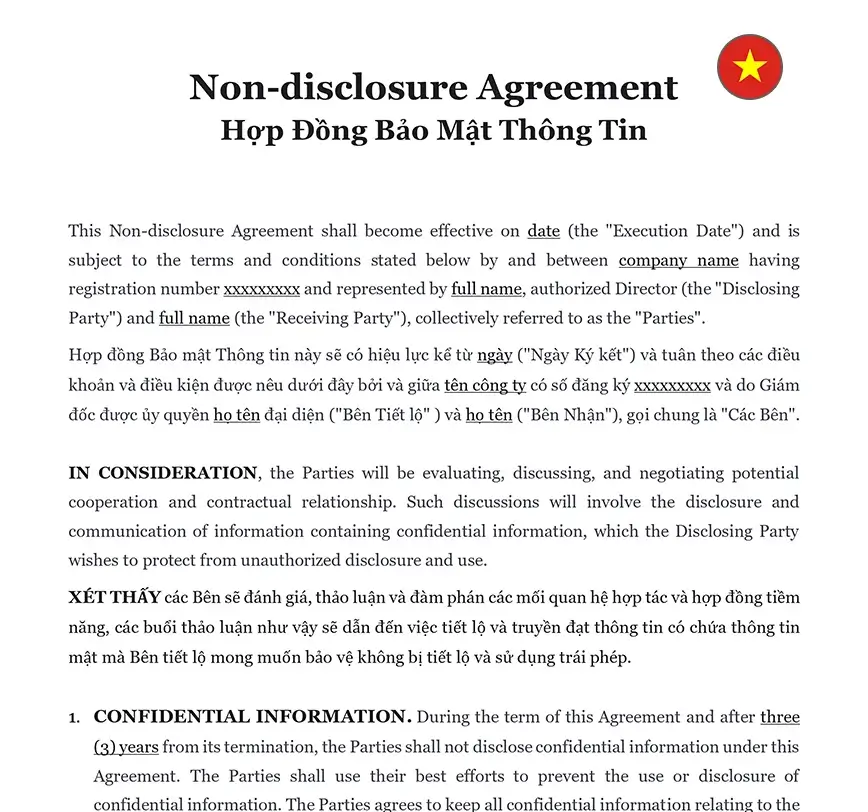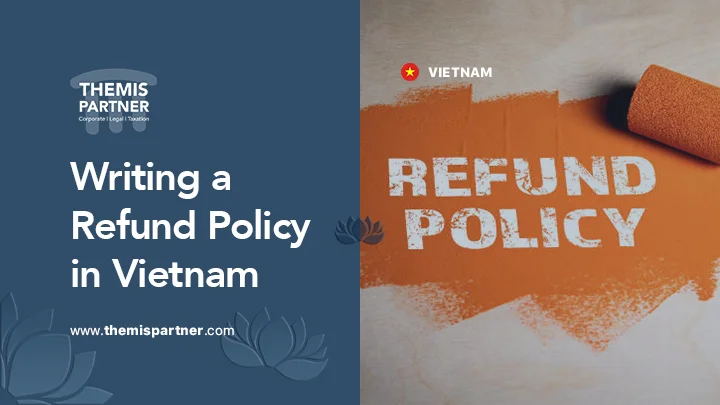Importance of a Non-Disclosure Agreement (NDA)
A Non-Disclosure Agreement (NDA) is a legally binding contract that outlines the confidentiality terms agreed upon by the parties involved. It ensures that sensitive information, such as trade secrets, financial details, and strategic plans, remains protected from unauthorized disclosure. Using an NDA is crucial for maintaining a competitive edge and building trust with partners, employees, and clients. Draft comprehensive confidentiality agreements with our NDA – Non-Disclosure Agreement template.
In Vietnam, where business relationships and networks are integral to success, the need for NDAs becomes even more pronounced. Companies frequently collaborate with various partners, from suppliers and distributors to consultants and contractors, each requiring access to different levels of sensitive information. An NDA helps create a secure environment for these collaborations by legally binding the parties to maintain confidentiality, thereby preventing the leakage of valuable business secrets.
Key Elements of an NDA to Protect Business Secrets
To effectively protect business secrets, an NDA must be comprehensive and detailed. Here are the key elements that should be included in an NDA:
| ➤ Parties Involved: Clearly identify the parties to the agreement, including individuals and organizations. This ensures that the legal obligations are binding on all relevant parties. |
| ➤ Definition of Confidential Information: Specify what constitutes confidential information to avoid ambiguity. This can include business plans, customer lists, technical data, and proprietary processes. |
| ➤ Obligations of Parties: Outline the responsibilities of each party in protecting the information. This includes measures they must take to safeguard the information and restrictions on its use. |
| ➤ Exclusions from Confidentiality: Identify any information that is excluded from the confidentiality obligations. Common exclusions include information already in the public domain or already known to the receiving party prior to the agreement. |
| ➤ Term of the Agreement: State the duration of the confidentiality obligations. Typically, NDAs in Vietnam last from one to five years, depending on the nature of the business and the sensitivity of the information. |
| ➤ Consequences of Breach: Detail the penalties or legal actions in case of a breach. This can include financial damages, injunctions to prevent further breaches, and the recovery of legal costs. |
| ➤ Governing Law: Specify that the agreement is governed by Vietnamese law. This ensures that any disputes will be resolved according to local legal standards and procedures. |











